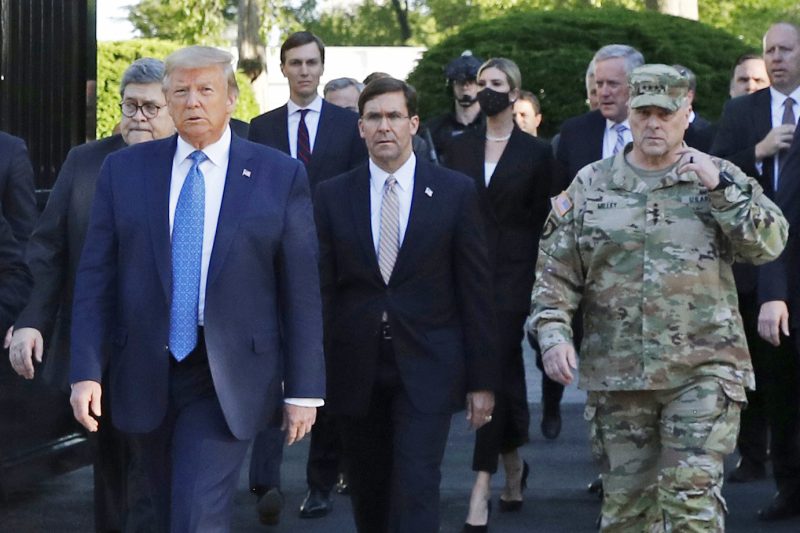The recent comments made by several past advisers of former President Donald Trump, characterizing him as a fascist, have sparked widespread debate and raised questions about trustworthiness within the political realm. While Trump vehemently denies these allegations and asserts that he is not a fascist, it is crucial for the public to critically analyze various perspectives and sources of information in order to make informed decisions.
Trump’s presidency was marked by a no-nonsense, unconventional approach to governance that often captured headlines and evoked strong reactions from supporters and critics alike. Some of his policies and actions were viewed as controversial and divisive, leading to accusations of authoritarian tendencies and undemocratic behavior. In response, a number of former advisers who worked closely with Trump have come forward to express their concerns about his leadership style and its perceived similarities to fascism.
These advisers, who had firsthand experience working within the Trump administration, have cited instances where Trump exhibited characteristics commonly associated with fascist leaders, such as a disregard for democratic norms, a cult of personality, and a tendency to stifle dissent. Their testimonies provide valuable insights into Trump’s behavior behind closed doors and shed light on the potential dangers of unchecked executive power.
On the other hand, Trump and his supporters vehemently reject the fascist label and argue that his actions were aimed at upholding American values and prioritizing the interests of the nation. They point to Trump’s focus on economic growth, job creation, and border security as evidence of his commitment to putting America first and challenging the status quo in Washington.
In the face of conflicting narratives from trusted sources, it can be difficult for the public to discern the truth and determine whom to trust. It is imperative to approach information critically, evaluate the credibility of sources, and consider the broader context in which claims are made. Engaging in open dialogue, seeking out diverse viewpoints, and fact-checking claims are essential steps in forming a well-rounded understanding of complex issues.
Ultimately, the question of whether Trump’s actions align with fascist principles is a matter of interpretation and debate. As individuals navigate the ever-evolving landscape of politics and media, it is crucial to remain vigilant, informed, and engaged in order to uphold democratic values and hold leaders accountable for their actions. Trust should be placed in transparent, fact-based reporting and the principles of democracy that serve as the foundation of a free and just society.
